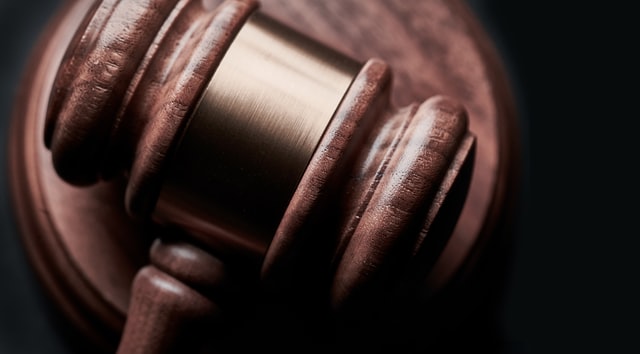
Lady Bird Deeds: A Complete Overview
This article has been reviewed by a practicing attorney in 2020.
This content is not intended to be a substitute for professional legal advice. Always seek the advice of an attorney or another qualified legal professional with any questions you may have regarding your situation.
A deed is a formal legal document that, when signed and executed, facilitates the transfer or conveyance of property ownership or legal rights.
When it comes to real estate, many people use deeds to transfer their property after death. By putting your property in a deed, it is not considered part of your estate and does not have to go through the judicial process of probation. This makes things easier for anyone you want to pass your property along to after you pass away. There are many types of deeds such as Lady Bird deeds and transfer on death deeds.
For seniors, deeds can be an important document to utilize. Depending on the state you live in, there are multiple options for transferring your property in a deed. Lady Birds deeds are a type of deed that was created in the 1980s by a lawyer in Florida.
The story goes that the lawyer, in explaining how the deed worked, used the family names of President Lyndon B. Johnson. Johnson’s wife was named Lady Bird. The name of the deed stuck to this day, even though they are only legal in a few states. Lady Bird deeds are important to know about to see if they can be beneficial to you.
What is a Lady Bird deed?
A Lady Bird deed offers a simple way to transfer real estate at your death and avoid probate. Also called an enhanced life estate deed, it is an inexpensive deed option that is available in certain states.
Lady Bird Deeds vs. Life Estate Deeds
Lady Bird deeds differ from standard life estate deeds.
With Lady Bird deeds, you are able to transfer property to someone else outside of probate while retaining a life estate in the property.
In life estate deeds, you name a beneficiary to inherit your property while you keep ownership of it in your lifetime.
However, restrictions come with life estate deeds. Once in a life estate deed, you are unable to sell or mortgage the property. In addition, if there is a significant decrease in the value of the property, you might be liable to the beneficiary.
Advantages of a Lady Bird deed
The benefits of this type of deed are what differentiates it from a standard life estate deed.
Sale of property
In a Lady Bird deed, you can sell the property at any time. You can also gift the property to someone else without needing the permission of the beneficiaries.
Tax benefits
Having ownership of your property while it is in a Lady Bird deed means that if you decide to sell your property, it will be considered an incomplete gift. For tax purposes, there are some benefits. The grantor does not need to file any gift tax return or pay a gift tax on the transfer since it is incomplete.
Medicaid eligibility
In order to qualify for Medicaid, the state looks at the value of your assets. Putting property in a deed subtracts it from the value of your estate. When it comes to transferring property, you as the applicant cannot have transferred property within the past 5 years. This is known as Medicaid’s look-back rule. Because Lady Bird deeds still allow you to sell, use, and profit from the property, you retain control of it. As a result, it does not count as a transfer of property for Medicaid eligibility purposes.
Lady Bird deeds also protect property after you have passed. If you are a Medicaid recipient, the state can claim repayment of benefits from the estate after you have passed away. In a Lady Bird deed, the property ownership passes outside of probate. If your state claims for reimbursement draw from probate property, anything in a Lady Bird deed would be protected and excluded from that claim.
Disadvantages of a Lady Bird deed
While Lady Bird deeds have various benefits, they also come with limitations.
Sale of property with multiple beneficiaries
If the owner of the property leaves multiple beneficiaries in the deed, it does not allow just one of them to sell the property following the owner’s death, unless the others give power of attorney. This means that the beneficiaries would have to otherwise work together to figure out what to do with the property.
Lack of provisions for descendants
Lady Bird deeds also lack provisions for descendants of a default beneficiary who dies before the grantee. The solution to this is to name the successor trustee of the grantor’s living trust as the default beneficiary in the Lady Bird deed, but it is something that must be actively done.
Title insurance
Another disadvantage has to do with title insurance. Title insurance is an important part of real estate transactions. It protects the insured from financial loss that can occur when there are problems with the real estate title. Problems include, but are not limited to: unpaid tax liens, gaps in the prior chain of title, and lack of ownership in the property that was conveyed. Title insurance steps in to protect from all of these issues, and is therefore necessary.
Insurance companies many times do not want to give a title policy when Lady Bird deeds are involved. This is because they do not want to have to insure or be involved in any litigation that may come up. They would rather deny the policy. As a private business, they are fully entitled to do so. The deed may create title issues that can be very costly and require legal action. However, the deed is not recognized as valid without the title policy. This is a major reason why they are only legal in a handful of states.
What states allow Lady Bird deeds?
Lady Bird deeds are not available in every state. Before you look into making one, you should make sure that they are legal in yours. The states that have them are:
- Texas
- Florida
- Michigan
- Vermont
- West Virginia
Each state has its own requirements for creating a valid and enforceable Lady Bird deed. The special language that is needed within the deed varies by state, which is where an attorney’s expertise is needed. If your state does allow them, it is a good idea to consult a lawyer and see if your situation will benefit in creating one.
Alternatives to a Lady Bird deed
If your state does not have Lady Bird deeds, there may be other options. About half of the states in the US have transfer-on-death or beneficiary deeds. These deeds are similar to Lady Bird deeds and may even be preferred over a Lady Bird deed. Some states also have caregiver and sibling exemptions, which allow for the transfer of property to your caregiver or sibling without violating Medicaid’s look-back rule.
Do Lady Bird deeds have to be recorded?
As with other deeds, a Lady Bird deed should be recorded after the property owner executes the deed. If you do not record the deed, it runs the risk of getting lost. A lost deed that has not been recorded is a difficult one to prove.
Can a Lady Bird deed be contested?
Any deed can be contested if the competency of the grantor comes into question. This includes a Lady Bird deed.
What is the cost of creating a Lady Bird deed and is an attorney needed?
When it comes to legal documentation such as deeds, getting the advice of an attorney is always recommended. Lady Bird deeds are governed by state law, so making sure you have all of the correct elements needed is where an attorney is beneficial. For deeds in general, there is usually a flat rate that the attorney will charge to draw one up for you. The cost differs between firms and states, but can usually be around $200 – $400. This includes drafting, finalizing, and recording the deed.
Final thoughts
Lady Bird deeds can be a helpful legal tool when it comes to seniors, estate planning, and Medicaid qualifications. It has advantages over a standard life estate deed in that you still have control over the property, but will not go against your Medicaid eligibility. If you live in a state where they are legal, contact an attorney to see if drafting one up is the best move for you and your situation. If you are not, there are alternative options, such as beneficiary deeds, that you may be able to employ instead. Your attorney will be able to guide you through any property transfers that you need to get done by deed.
Related Articles

Trusts: What is One and How do They Work?
Estate planning is an integral part of planning for seniors. There are many different forms of estate planning and various tools available to use. One estate planning tool that can be helpful for many seniors is a trust. They can serve many different purposes and are a great estate planning tool, regardless of your estate’s […]

Burial Insurance: Everything You Need to Know
If you have an elderly loved one, you may be considering burial insurance. This is a type of life insurance that specifically covers final expenses. A 2020 report on life insurance policyholders found that 84% of those that buy life insurance, do so to cover end-of-life expenses. Considering that the majority of people who have […]

Where There’s a Will, There’s a Plan
This article has been reviewed by a practicing attorney in 2020 This content is not intended to be a substitute for professional legal advice. Always seek the advice of an attorney or another qualified legal professional with any questions you may have regarding your situation. There are many types of estate planning documents you can […]

Elder Law Attorneys: A Comprehensive Guide
If you are someone who is taking care of a senior or has an elderly loved one, you should consider working with an elder law attorney. Though you may not expect it, individuals begin to face new and more complex legal concerns as they get older. Actions that may have seemed trivial when they were […]

Transfer on Death Deeds: A Complete Overview
Deciding how you want your assets and estate distributed on your death can be an emotional task. Analyzing the legal mechanisms to accomplish this task can be overwhelming and exhausting. You want to be sure your assets will be distributed in accordance with your final wishes, but you also do not want to burden your […]

Lady Bird Deeds: A Complete Overview
This article has been reviewed by a practicing attorney in 2020. This content is not intended to be a substitute for professional legal advice. Always seek the advice of an attorney or another qualified legal professional with any questions you may have regarding your situation. A deed is a formal legal document that, when signed […]